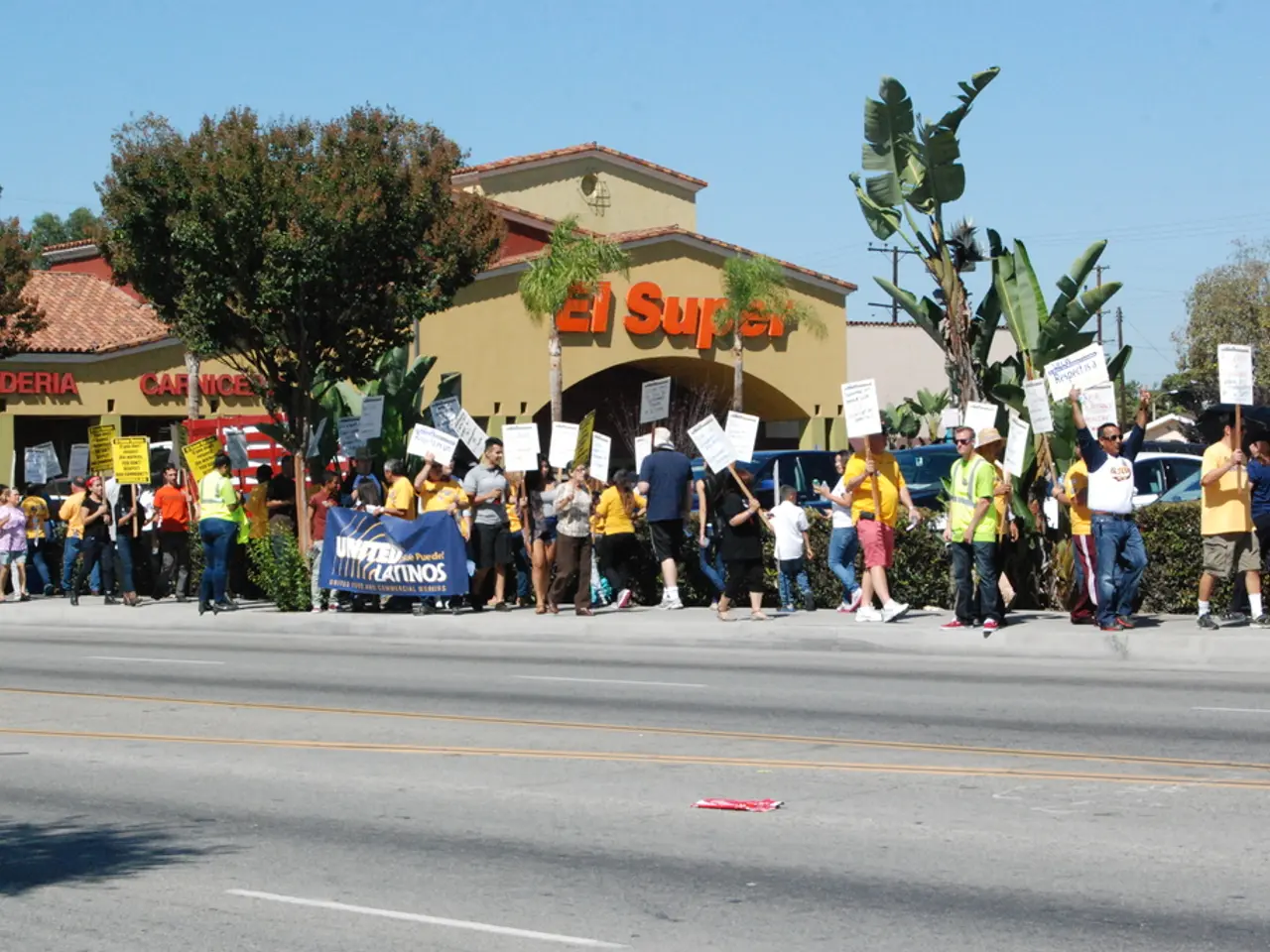Prior to the upcoming elections: What are the goals of the Union, SPD, Greens, and FDP parties?
In the approaching German federal election on February 23, four major parties—the Union (CDU/CSU), SPD, Greens, and FDP—are vying for power, each with distinct policy positions on taxes, social issues, economy, migration, Ukraine/Russia, and armed forces.
Taxes
The SPD generally advocates for higher taxes on the wealthy and corporations to fund social programs and reduce inequality. Conversely, the FDP promotes tax cuts, deregulation, and a pro-business tax policy to stimulate growth and innovation. The Union typically favors moderate taxation policies, while the Greens support progressive taxation with additional emphasis on environmental taxes and incentives to promote sustainability.
Social Issues
On social issues, the SPD and Greens tend to emphasize social justice, expanded welfare benefits, gender equality, and inclusivity. The Union often takes more conservative stances on family policies and law-and-order issues. The FDP favors individual freedoms, civil liberties, and a liberal social agenda.
Economy
The SPD supports increased public investment and protecting worker rights alongside a social market economy model. The Greens push for a green transition, investing in renewable energy sectors, and sustainable economic growth. The Union focuses on economic stability, supporting traditional industries, and balanced budgets. The FDP advocates for free market policies, entrepreneurship, and reducing government intervention.
Migration
The SPD and Greens mostly promote integration policies, humanitarian approaches to refugees, and managed immigration. The Union balances controlled immigration policies with integration, often stressing security and assimilation. The FDP tends to favor skilled migration to support economic needs but with controlled regulation.
Ukraine/Russia
All parties—SPD, Greens, and Union—support continued assistance to Ukraine and a firm stance against Russian aggression. The SPD may advocate for diplomatic approaches, while the Greens emphasize human rights and sanctions. The FDP supports a strong pro-Western foreign policy, including NATO commitments and economic sanctions against Russia.
Armed Forces
The Union generally supports strengthening the German military and increasing defense spending. The SPD is more cautious but supports modernizing the Bundeswehr within budget limits. The Greens emphasize defense with responsibility, prioritizing diplomacy but supporting necessary military capabilities. The FDP advocates for liberal defense policies, modernizing the armed forces, and fulfilling NATO defense commitments.
These positions source broadly from known party platforms and recent coalition talks. Detailed polling and platform specifics directly comparing these policy areas for the 2025 election are limited in the provided search results.
As the candidates—Robert Habeck (Green Party), Friedrich Merz (CDU), and Olaf Scholz (SPD)—present their programs in Berlin, the FDP is set to present their program a day later. The SPD and Greens want to increase the minimum wage to 15 euros, with the Greens aiming to do so a year earlier. The Union is promising relief for taxpayers and gradually lowering the income tax rate.
The SPD and Greens want to make wealthier people contribute more, while the Union wants to abolish the name "citizen's income" and replace it with their "New Basic Security," which would focus more on job placement. The Greens advocate for a fair, binding, and solidarity-based distribution of people seeking protection in Europe. The FDP is demanding a "truly flexible retirement age," as well as reiterating its demands for an "individual stock pension" and an "Altersvorsorgedepot for private old-age provision."
The SPD does not want to deliver the Taurus cruise missiles requested by Ukraine, while the FDP program draft states that Ukraine must be able to defend itself against launch bases and supply lines on the Russian side with long-range weapons, and demands the immediate delivery of the Taurus cruise missile. After an election victory, the Union is pushing for Germany, France, Poland, and England to develop security guarantees for Ukraine in coordination with the USA. The CDU/CSU wants to appeal to "the hardworking" with ideas like tax-free overtime pay. The Union is advocating for an immediate stop to the intake of illegal migrants at the border, and the SPD wants to keep the solidarity surcharge for the wealthy, while the Greens want to integrate it into income tax.
As the election approaches, the parties' policy differences are becoming increasingly clear, with each offering distinct visions for Germany's future. The outcome of the election will shape the nation's approach to taxes, social issues, economy, migration, Ukraine/Russia, and armed forces, setting the stage for the next four years.
[1] Party Platform - SPD [2] Party Platform - Union (CDU/CSU) [3] Party Platform - Greens [4] Party Platform - FDP [5] Coalition Talks - SPD, Union (CDU/CSU), and Greens
- The SPD advocates for higher taxes on the wealthy and corporations to fund social programs and reduce inequality, as opposed to the FDP's promotion of tax cuts and a pro-business tax policy to stimulate growth and innovation.
- On social issues, the SPD and Greens emphasize social justice, expanded welfare benefits, gender equality, and inclusivity, while the FDP favors individual freedoms, civil liberties, and a liberal social agenda, often taking more conservative stances compared to the other parties.







